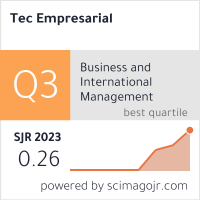THE EFFECT OF CERTIFICATION ON PRODUCTIVITY OF MANUFACTURING INDUSTRY IN INDONESIA
Abstract
The manufacturing industry contributed 20% to GDP in 2019, which exported 74%. Various efforts have been made to increase productivity, one of which is through certification. Certification is an activity carried out by a third party, namely a conformity assessment agency, to assess and provide assurance that a product, system or personnel has met the requirements of a certain standard. This study aims to analyze the effect of certification ownership on the productivity of the manufacturing industry in Indonesia. Productivity is measured by looking at the growth value of Total Factor Productivity (TFP) and certification is measured based on ownership of the SNI certificate for the manufacturing industry. The estimation method used in this study is in two stages, 1) using a production function estimation model to be able to estimate the Total Factor Productivity (TFP) value used as a productivity variable and, 2) regression using the productivity variable obtained in the first stage as the dependent variable and the certification variable as an independent variable in estimating the effect of certification on productivity. The variable describing the productivity (TFP) of the manufacturing industry varies between 2.24% to 3.27% with an average TFP value of 2.79% and a standard deviation of 0.22% which indicates that the distribution of TFP growth value data for the manufacturing industry in this study tends to be around its average value. The regression results show that the SNI certificate variable has a significant positive effect on the total productivity (TFP) of the manufacturing industry. From the regression results, a coefficient value of 0.8412 is obtained, indicating that if the percentage of SNI certificate ownership in a particular type of industry increases by 1 percent, assuming all other variables remain constant (ceteris paribus), the TFP growth value in the industry will increase by 0.8412 percent. The HHI coefficient value obtained is 0.0687, indicating that if the concentration of an industry increases by 1 percent, the TFP growth value in the industry will increase by 0.0687 percent. So it can be concluded that overall the estimation results from the model show that there is an influence of SNI on the total productivity of the manufacturing industry.






